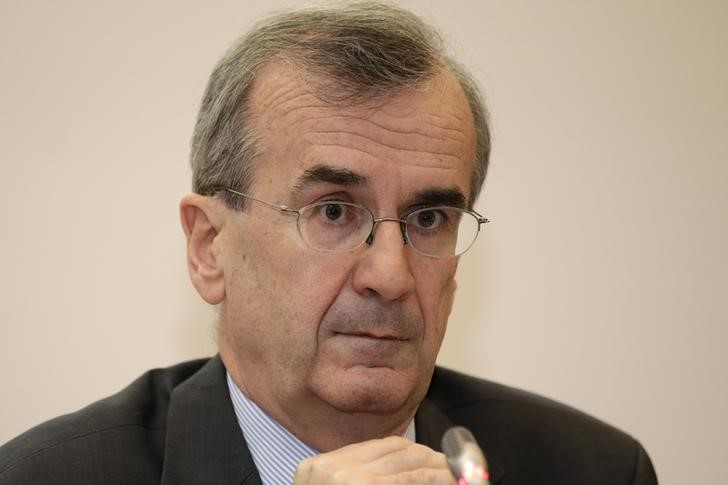NEW YORK (Reuters) - Britain should stay in the European Union, but regardless how it votes on June 23, the EU needs to forge closer ties to get out of its economic rut, the head of the French central bank said on Monday.
A British exit would have consequences for both financial markets and monetary policy, with implications for the single financial market, said Francois Villeroy de Galhau, who also sits on the European Central Bank's Governing Council. The Bank of England is already working on contingency plans, he added.
"Britain needs Europe and the opposite is also true, Europe needs Britain," Villeroy told a business forum in New York. "I strongly prefer for Britain to stay."
European growth is picking up, thanks primarily to improving dynamics in Germany and Spain, Villeroy said, but deep-rooted structural inefficiencies are weighing on the region's recovery.
With or without Britain, the EU needs more investment, better coordination on demand-side policies and faster structural reforms and labour market reform, Villeroy said.
Besides Brexit, risks for Europe include the continent's refugee crisis, the threat of terrorist attacks and lower growth in emerging economies like China, Villeroy said.
"Nevertheless, the European recovery is on its way," he said.
Villeroy declined to discuss monetary policy with the ECB’s next meeting scheduled for Thursday, but he said oil prices seemed to have bottomed out, which should help boost inflation during the rest of 2016.
The ECB is expected to keep rates unchanged at Thursday's meeting and provide further detail on some of its March measures, such as spelling out how its purchases of corporate debt will work.
In March, the ECB cut all of its key rates, expanded its asset purchases and offered ultra cheap loans to banks, hoping to generate lending, growth and inflation.

Euro zone inflation has been stuck near zero for most of the past year. It has little chance of returning to the ECB’s target of close to but below 2 percent in the next two years.